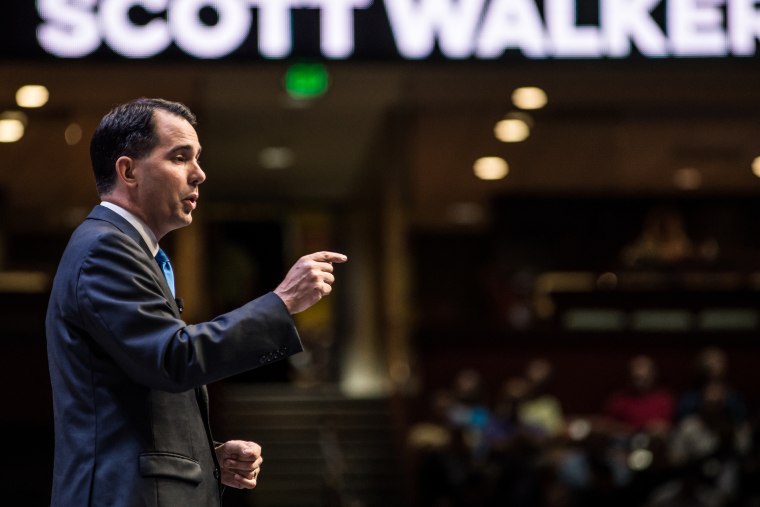Wisconsin's April 5 primary is likely to be important for all kinds of electoral reasons, but the day will also be significant in terms of the voting process itself: it will be the first big test of the state's ridiculous voter-ID law. Gov. Scott Walker (R) signed legislation to create the system in 2011, responding to a "voter fraud" scourge that did not exist, but following a series of legal disputes, this will be the first presidential election year in which the system is fully implemented.
For supporters of voting rights, this isn't good news. A report from Pro Publica noted this week, for example, that the law requires Wisconsin's Republican-run state government to run "a public-service campaign 'in conjunction with the first regularly scheduled primary and election' to educate voters on what forms of ID are acceptable."
To date, it appears that public-service campaign has not happened and no money has been a set aside to educate the public. With literally hundreds of thousands of Wisconsin voters facing disenfranchisement, it's a major problem officials are not even trying to fix.
It's also not the only step backwards Wisconsin has taken on voting rights. MSNBC's Zack Roth reported today:
A bill signed into law last week by Wisconsin Gov. Scott Walker could make it much harder for the poor and minorities to register to vote in the pivotal swing state just as the 2016 election approaches. The Republican-backed measure allows Wisconsinites to register to vote online. But voting rights advocates say that step forward is massively outweighed by a provision in the bill whose effect will be to make it nearly impossible to conduct the kind of community voter registration drives that disproportionately help low-income and non-white Wisconsinites to register.
No other state, including states led entirely by Republican officials, has created a registration system that dismantled community-registration drives.
Project Vote noted this week, "Local and national group ... joined together to show [Wisconsin] lawmakers that the proposed online registration system would not be available to all eligible electors, disproportionately impacting students, veterans, older individuals, low-income people and people of color. We explained that it is community registration drives that often register the very people unable to use online registration."
The GOP-led legislature wasn't willing to change the bill. Walker, naturally, signed it.
This won't affect the state system in advance of the April 5 primary, but as Zack Roth's report noted, the new policy "could well curtail voter registration ahead of the general election."
In recent years, Wisconsin has been a competitive, battleground state for presidential candidates -- President Obama won the state twice, even after Wisconsin's Paul Ryan was added to the Republicans' 2012 ticket -- and will likely receive a lot of interest this fall, too. What's more, the state is home to a key U.S. Senate race -- incumbent Sen. Ron Johnson (R) is facing a rematch against former Sen. Russ Feingold (D) -- and the outcome will help determine which party controls the chamber in the next Congress.
